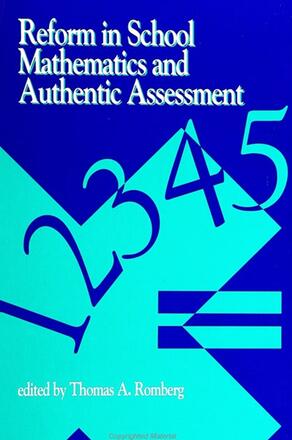
Reform in School Mathematics and Authentic Assessment
Alternative formats available from:
Description
Today new ways of thinking about learning call for new ways for monitoring learning. Reform in School Mathematics builds from the vision that assessment can become the bridge for instructional activity, accountability, and teacher development. It places teachers in key roles while developing the theme that we cannot reform the way in which school mathematics is taught without radically reforming the ways the effects of that teaching are monitored. Among others, this volume addresses the issues of the specification of performance standards, the development of authentic tasks, the measure of status and growth or a combination, the development of psychometric models, and the development of scoring rubrics. The new models proposed in this book give teachers a wealth of non-traditional assessment strategies and concrete ways to obtain measures of both group and individual differences in growth.
Thomas A. Romberg is Director of the National Center for Research in Mathematical Sciences Education and Sears Roebuck Foundation-Bascom Professor in Education at the University of Wisconsin-Madison. He is the editor of Mathematics Assessment and Evaluation: Imperatives for Mathematics Educators, also published by SUNY Press.
Reviews
"This book addresses a key issue in mathematics education today. The perspective from which this text is written is one that is needed as a response to the occurring reform in mathematics education and the movement to understand learning and doing mathematics as social construction. How to align this newer conceptualization with testing procedures is an issue that is often raised in the circles in which I am active. I especially like the emphasis on the use of assessment as an integral part of the learning and teaching process that is evident in several of the chapters. " — Constance Smith, State University of New York at Geneseo
"The book will appeal to mathematics education researchers, curriculum developers, supervisors, and personnel at state and national testing agencies. Those interested in general issues of assessment will also be interested in this book, particularly because mathematics is leading the reform of curriculum and assessment in schools in this country today. " — Judith T. Sowder, San Diego State University